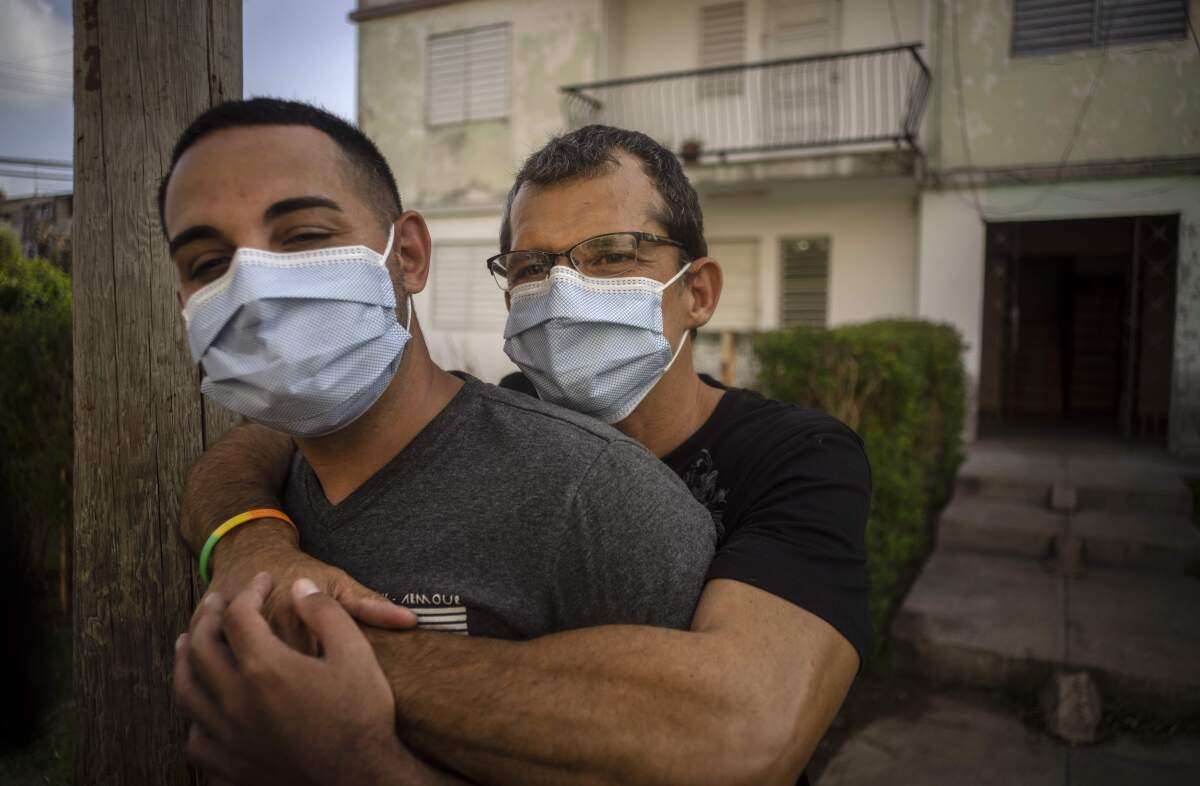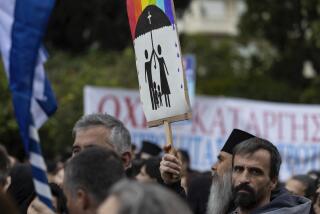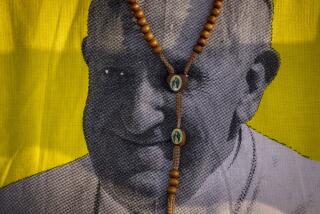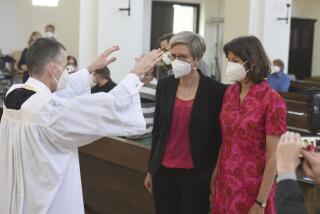Cubans are divided over proposed law to allow same-sex marriage

Adiel and Lachi are anxious to get married, perhaps dressed in black, in a ceremony by the seashore.
The idea bothers the Rev. Moises de Prada, who, like many of his parishioners, opposes a proposal to legalize same-sex marriage in Cuba.
The Cuban government recently published a draft Family Law and asked for public comment ahead of a referendum, creating an unusually public clash over policy on the island where Pentecostal churches have been growing.
For Adiel González, a 31-year-old theologian, the idea of submitting his right to marriage to a public referendum is painful.
“You are submitting to the vote of a heterosexual, heteronormative majority the rights of a minority,” he said from his apartment in the central city of Matanzas, where two cats roam and a cross in rainbow colors hangs from a wall.
Both he and his partner, 51-year-old accountant Lázaro “Lachi” González, work at the relatively mainline Evangelical Theological Seminary in Matanzas.
“God has no stepchildren, so we are all daughters and sons of God, and what Adiel and I do is have a life with love,” Lázaro González said.
The proposed law, which is to be considered by Cuba’s parliament after the still unscheduled referendum, has more than 480 articles. It would also formally expand grandparents rights, allow for prenuptial agreements and — in cases of divorce — have financial consequences for those who have committed gender violence.
Parents could decide whether a child‘s paternal or maternal surname has precedence. Children’s rights would be gradually expanded as they grow.
But the biggest controversy is over changing the definition of marriage in the current law, which specifies it is between a man and a woman, to merely say between two people.
It would also open the way for gay people to adopt, and for surrogate pregnancies — though not for payment.
“It is not going to bring any benefit,” said De Prada, general superintendent of the Assemblies of God church, which has grown rapidly in Cuba and now claims more than 2,000 congregations and 1 million members.
“The family, conceived as it is structured in the word of God, is that which is agreed between a man and a woman and the resulting children,” he said.
Although Cuba was officially — and often militantly — atheist for decades after the 1959 revolution led by Fidel Castro, it has become more tolerant of religion over the past quarter-century. That has meant a greater opening not only to the once-dominant Roman Catholic Church, but also to Afro-Cuban religions, Protestants and Muslims.
Some of those churches took advantage of the opening in 2018 and 2019 to campaign against another plebiscite that would have rewritten the Cuban Constitution to allow gay marriage.
Opposition from social conservatives was strong enough at the time that the government backed away, though the change was supported by lawmaker Mariela Castro, daughter of then-President Raul Castro and director of Cuba’s Center for Sexual Education.
Justice Minister Oscar Silvera Martínez told the Associated Press that the new proposed law “does not construct social realities; it tries to foresee legal solutions, protect those social realities that exist.”
Assemblies of God General Secretary Julio César Sánchez said such unions would be “the result of sin.”
“The argument that they should be regularized because they exist is not valid,” he said, “because murder also exists. ... That doesn’t mean it’s good.”
The differences play out in the streets as well.
“There are people who are going to be against same-sex couples joining in matrimony, but I think that’s something normal,” said Alberto Dausá, a 68-year-old retiree.
A few feet away, Carola Reyna, a 25-year-old homemaker, said she wasn’t against gay couples being happy, “but it seems to me that [adopting] children, they shouldn’t get involved in that.”
More to Read
Start your day right
Sign up for Essential California for news, features and recommendations from the L.A. Times and beyond in your inbox six days a week.
You may occasionally receive promotional content from the Los Angeles Times.






